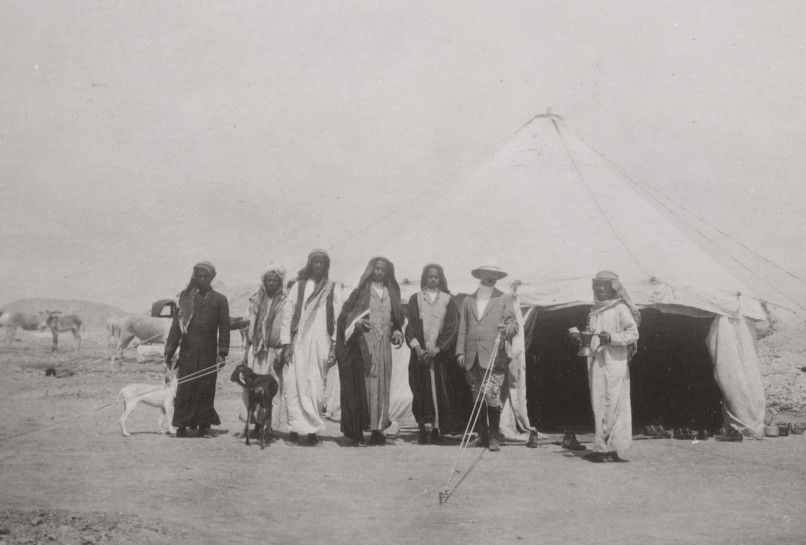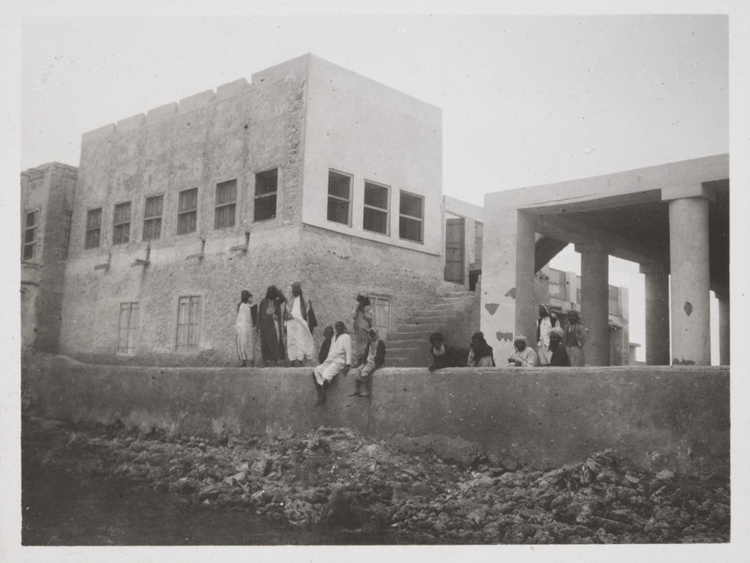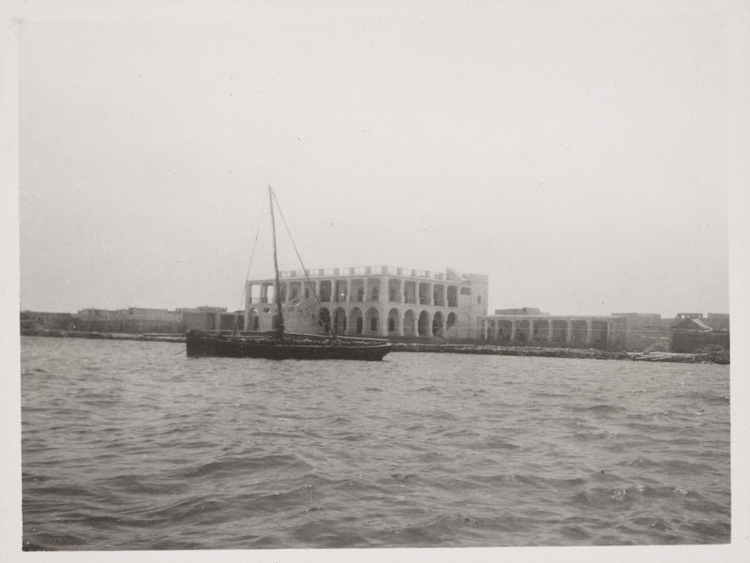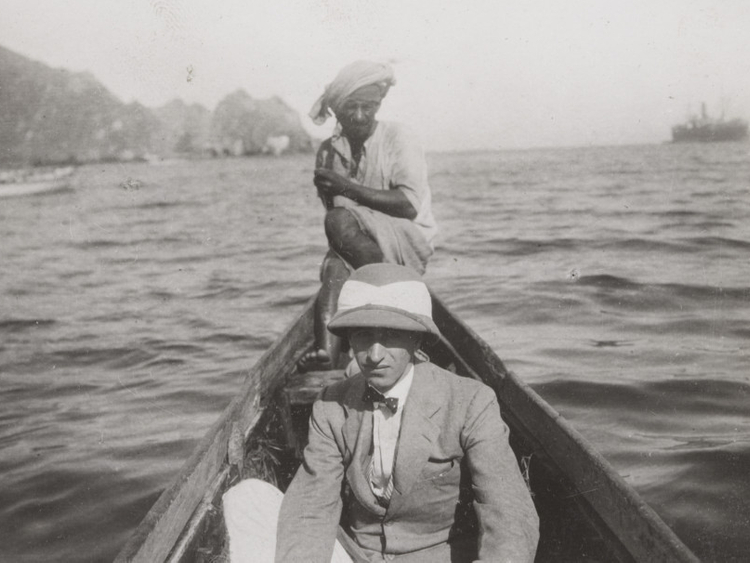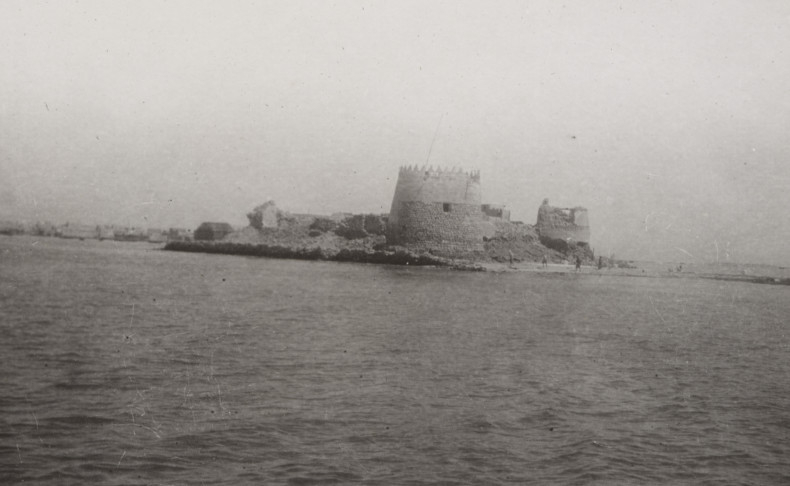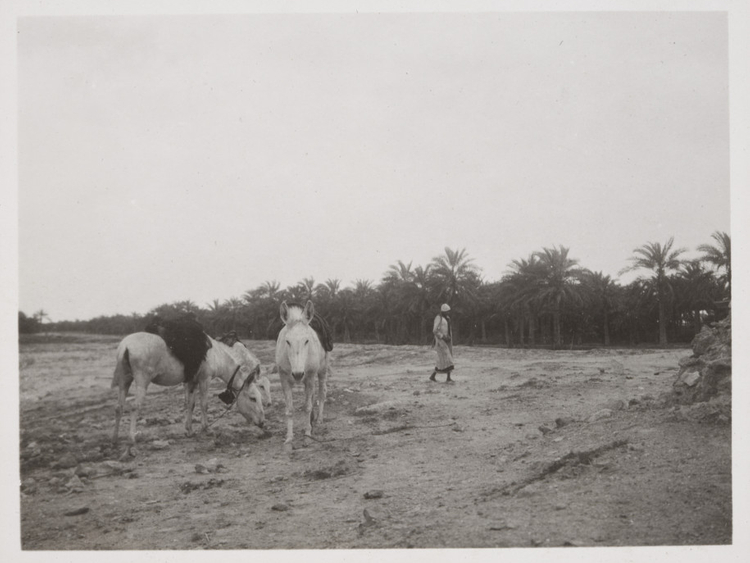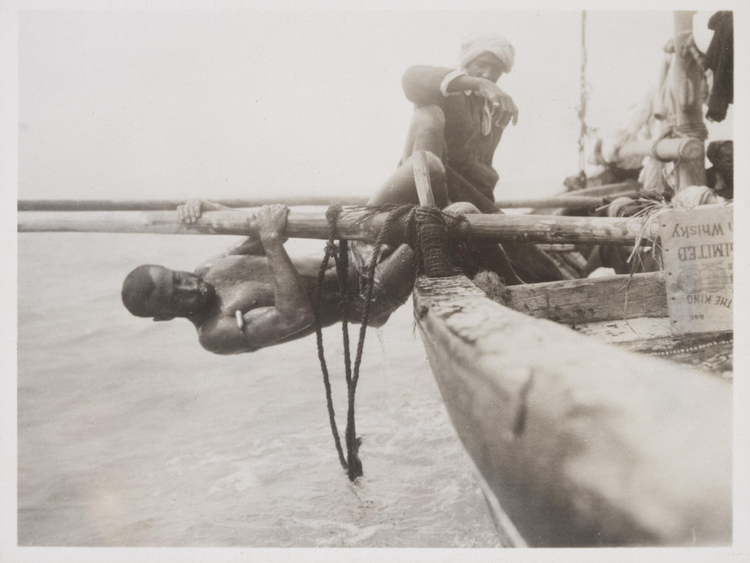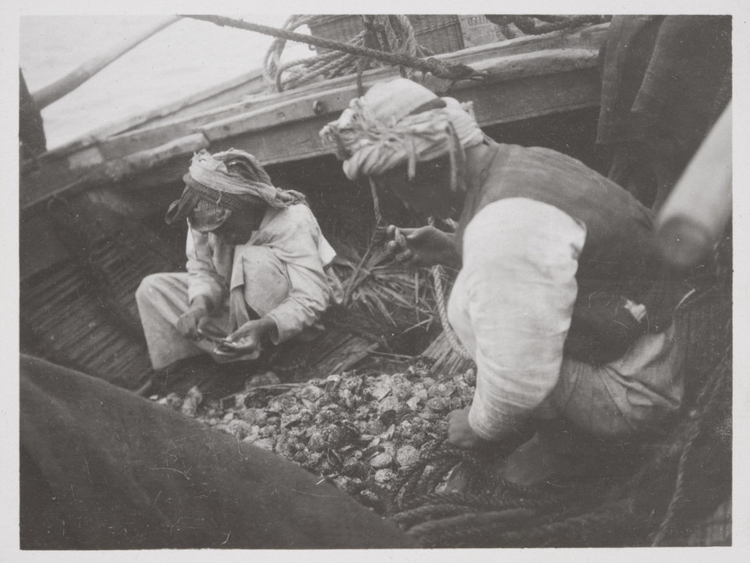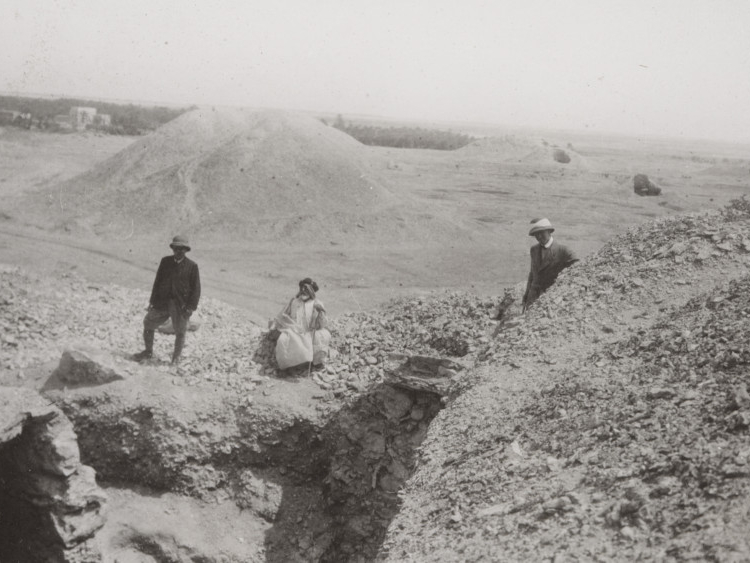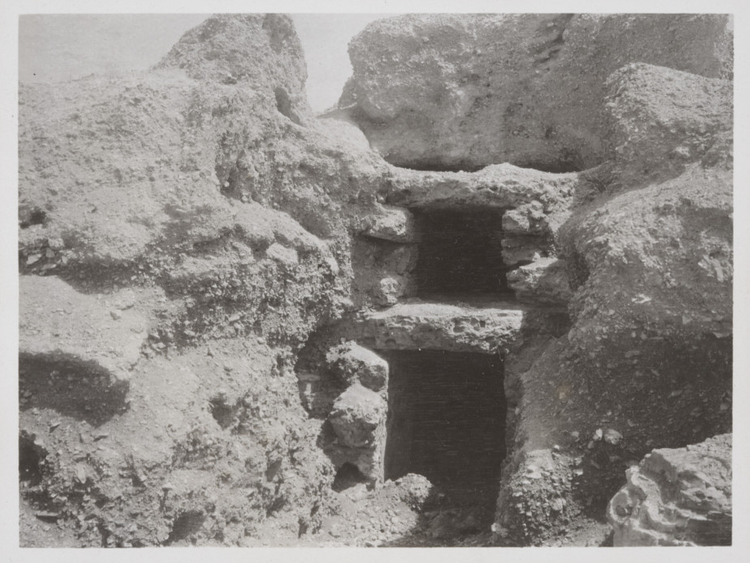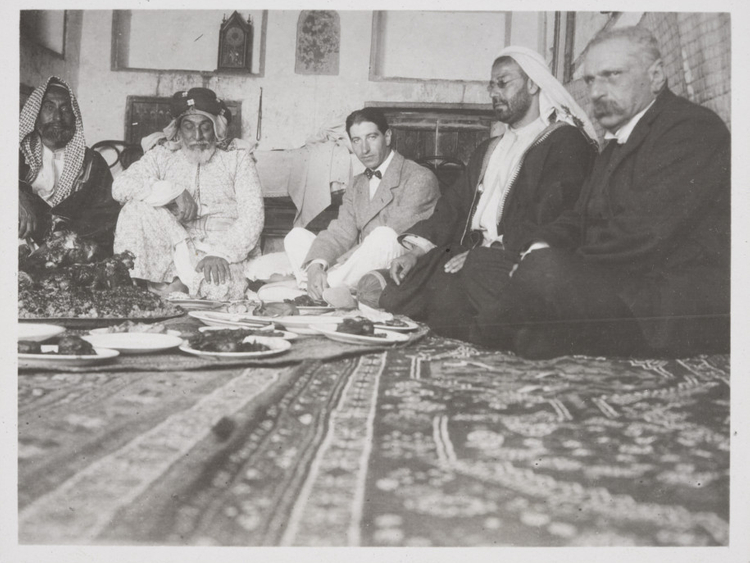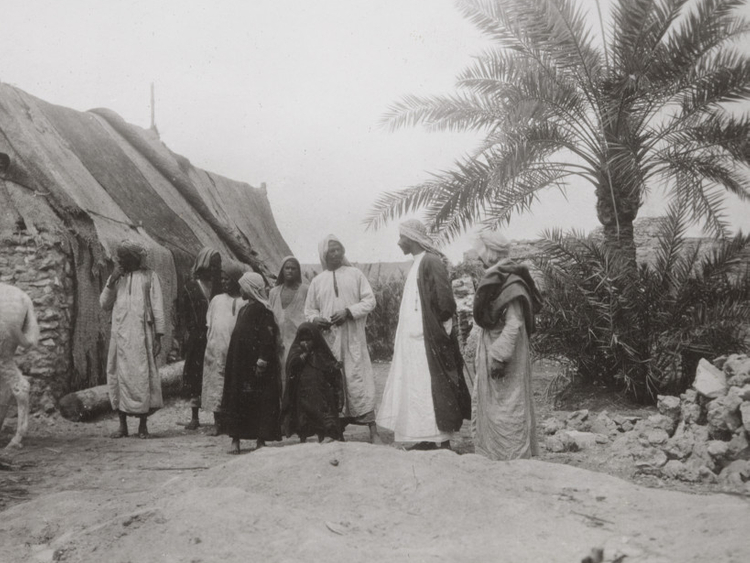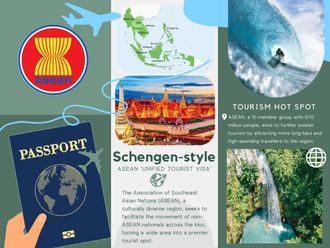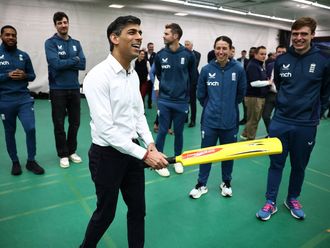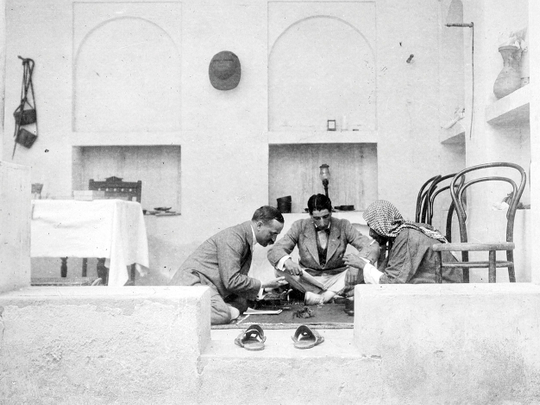
Dubai: A unique regional campaign titled The Pursuit of Magnificence has been launched to highlight Jacques Cartier’s first trip to the Middle East.
The campaign by Cartier Middle East pays tribute to Jacques’ journey and is a testament to his talent as an explorer.
He travelled to the Gulf in pursuit of the world’s most precious pearls.
The campaign depicts the history and modernity of the Gulf and highlights the collection inspired by his journey.
The Pursuit of Magnificence is derived from a journal kept by the French explorer at the turn of the 20th century, where he has documented his expedition, visiting local shops, places of worship, and residences — from mosques to pearl merchants in Bahrain.
Comprising an array of pieces from Cartier’s archives, the campaign aims to reflect and honour the long-time relationship between the Cartier House and the Gulf.
Cartier's Gulf visit in 1912
Pierre Rainero, director of Image, Style, and Heritage, said Jacques Cartier, accompanied by his sale assistants, travelled to the Gulf in 1912.
Inspired by his captivation, curiosity and respect for local customs and traditions, Cartier has also created a film on the subject which will be released in three chapters, bringing the story and his vision to life.
The film highlights Jacques’ arrival in the Gulf on a dhow, while being welcomed by regional icons such as a falcon, a horse, an Arabian city, a pearl fisher net and the moon.
Ramadan and Eid are a time where families and communities unite to share enchanting stories about the past and present. The campaign aims to highlight the uniqueness of the month.
Cartier was founded in 1847 by Louis Francois Cartier.
Who is Jacques Cartier?
Jacques Cartier, born in 1885, was one of the three sons of Alfred Cartier and the brother of Pierre Cartier and Louis Cartier.
Jacques’ grandfather, Louis-Francois Cartier, was a French watchmaker who established the first Cartier business in 1847. Louis-Francois Cartier’s son, Alfred, became a partner in the business in 1872 and began running the shop two years later. Jacques worked with his brothers to create the world famous business, Cartier. The company was recommended by Princess Mathilde of France, the young cousin of Napoleon III, which contributed to boosting the business. Jacques ran Cartier’s London store until his death in 1942. His brother Louis also died in the same year. Pierre, the other brother, died in 1964.
Excerpts from Jacques’ diary
Muscat, March 9, 1912
[Eleven] in the evening, I saw the phosphorescent sea. From the captain’s bridge, the two waves shaped by the ship’s bow were so blue it looked as though they were being illuminated from below — the whole boat was encircled by a luminous band and everywhere you looked fish left their zigzag trails through the water’s surface. It was like fireworks on the surface of the sea.
March 10
At 10 o’clock this morning, we passed the island of Musandam which is reputed to be the hottest place on earth. During the summer, not a single bird or insect can be found there, and even the fish desert its shores.
March 14
We also get clear sight of the city of Moharrek and further in the distance the villages of Sathin and Dir, which look like small islands but, in actual fact, are only separated from Moharrek by dunes.
At sunset, these towns appear to lie barely above sea level and are reminiscent of a mirage.
In short, it has been an enjoyable crossing and we can only be thankful for how well we’ve been looked after right from the outset.
March 16
After lunch, we set sail to visit Shaikh Eisa, the Great Shaikh, on the island of Moharrek. He is a wonderful old man; I shower him with compliments and he is very pleased. He invites me to have lunch with him on my next visit. He allows us to take his photo. The conversation does not flow very quickly, as I say something in English, Sethna then produces a slightly embellished Hindustani translation and Shaikh Yousuf Kanon translates this into Arabic for the Shaikh, adding his own personal touch, meaning that for a message of 50 words, Yousuf Kanon would have a half-hour discussion and as answers were delivered in the same manner, the interview did not last long.
Dubai, March 18
The houses are separated by a bewildering, intertwining mesh of alleyways and finding your way out of this labyrinth makes a guide essential, despite the sea sounding as if it’s always just around the corner.
Passengers and goods alike are thus transported from the boat to customs by donkeys. These are the famed donkeys of Bahrain which are as strong as horses, almost as large and equally valuable.
On closer inspection, the city loses a great deal of its charm, as is always the case in the Orient. There is nothing but narrow alleyways running between monotonous houses but the locals are interesting, the men are striking, well-built and with eyes full of warmth.
The Shaikh introduced us to his son who speaks fluent Hindustani and a little English. He is 17 years of age. In his father’s presence, he does not sit down and fulfils his primary domestic role. We are offered tea and (European style) biscuits, as well as a selection of fine rustic breads with goat’s milk butter which was altogether quite delicious.
On our return [to the house], Mujbal came to pick us up in an old horse-drawn carriage which he is very proud of, there are only two cars on the island. He took us to his garden which is wonderfully positioned, on the edge of a lagoon and enjoys abundant shade.
Its plantations cover a square kilometre; they are home to fruit trees planted in staggered rows and patches of lucerne with vegetables and flowers at their feet. Arabic gardens are always planted in a geometric pattern, it’s very pretty but always has a practical goal: that being so that the continually pumped water is equally spread among the furrows used to distribute it.
Our host was sure to provide us with an evening meal, and so we were sent, three roast chickens, three plates of rice, three plates of beef, three plates of mince and pastry, three plates of desserts, in essence enough to feed the shipwrecked crew of the Medusa for a month …
After a game of chess with Sethna, I have now made my way to bed in my wind palace. What wonderful music they’re playing this evening!
March 19
We then went pearl-oyster fishing, and the divers brought us two hundred oysters but pearls were nowhere to be seen.
We have four divers, who work in pairs — one on the port side, the other on the starboard — while the other two warm themselves back up around a stove inside the boat. The water was cold and they could work for little more than an hour and a half. We came across several boats fishing along the banks, but nevertheless the season has not yet begun, as the water is too cold to dive to the depths and near the coast only limited numbers of small pearls can be found.
The diver’s equipment is well known: a nose clip, leather guards to protect the fingertips (wax in the ears when they dive to greater depths), a leaf basket to which they tie a rope which is used to pull them back on board. A horizontally positioned oar is used as a pulley.
The diver places his foot into a stirrup below which there is a rock, he presses against the rock with the other foot and, along with the basket, plunges to the bottom. The “puller” hauls the rope and the rock back on board. The diver then places the basket around his neck and collects with both hands. His feet are almost always above him and he must kick his legs in order to stay within reach of the oysters.
He stays under water for an average of a minute after which he gives the rope attached to the basket a tug and the “puller” brings him back to the surface, the basket in his right hand. He clings on to the stirrup with one hand and, having got his breath back, dives several times again before returning to the boat.
March 20
Today we visited the “Mounds of Ali” by donkey. They are Phoenician burial mounds which have been excavated several times by French and English scholars. Inside, they found little in the way of items but instead documents.
In general, these tombs are made up of two superimposed chambers: in the higher one, horse bones were found along with rudimentary weapons and fragments of ivory statuettes, in the lower one, the remains of the Phoenician.
Shaikh Ali. who is the head of the community, established, or rather camped, nearby these tombs, offered us lunch in his tent. In the summer, he lives in Manaura where he has a house, he has another in Moharrek. He has beautiful greyhounds and a stunning thoroughbred, but he longed for more game.
March 26
We are expecting the Tynesider at any moment. It is time for our farewells. As is customary, I was invited by our host for coffee before dinner, between evening prayers and those at eight o’clock in the evening (at the mosque). He hosts gatherings in the lower room on the ground floor. The only light was from a lantern and at first it was hard to see. In the right-hand corner, on the ground, our old friend is crouching before a small table laden with books.
Along the wall, there are around fifteen men who make up his clientele (in the Latin sense of the word) and are his agents from a commercial and social point of view.
They chat: from time to time their leader reads a verse of the Quran to further fuel the conversation and the servant provides coffee every half hour. When he passes around rosewater or incense, which each person inhales in turn, that means that the meeting is adjourned.
We couldn’t have wished for a more helpful friend than Shaikh Mujbal and the way in which he treated us left us in absolutely no doubt as to his good faith.
Despite characteristic Arabic exaggeration, one might nevertheless believe that the flowery expressions conceal an absence of sincerity and that flattering interpretations perhaps go somewhat beyond personal opinion, but in fact the opposite is true. To express themselves in a compelling manner, they do not use the comparative or superlative, but rather the absolute.
— Compiled by Ahmad Khalid and Aya Sadek, interns at Gulf News


